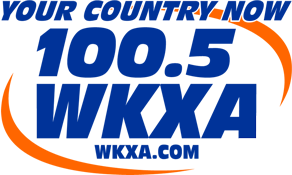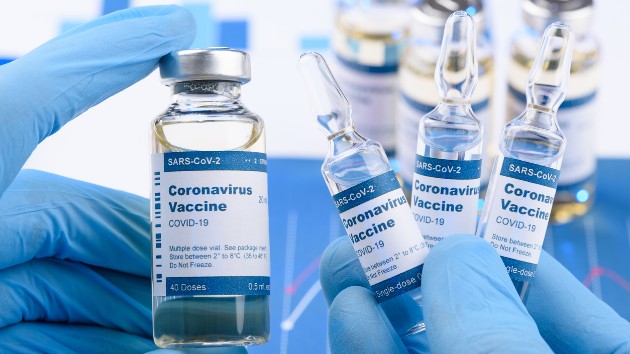Americans willing to receive COVID-19 vaccine but divided on timing: POLL
nevodka/iStockBy KENDALL KARSON, ABC News
(NEW YORK) — With the trucks rolling and the first government-authorized coronavirus vaccine making its way to all 50 states, a strong majority of Americans are inclined to get the vaccine but are divided over exactly when, a new ABC News/Ipsos poll released Monday finds.
More than eight in 10 Americans say they would receive the vaccine, with 40% saying they would take it as soon as it’s available to them and 44% saying they would wait a bit before getting it.
Only 15% said they would refuse the vaccine entirely in the new survey, which was conducted by Ipsos in partnership with ABC News using Ipsos’ Knowledge Panel — a reflection of growing confidence in the rapidly-developed vaccine, which marks a long-awaited turning point amid an unrelenting COVID-19 pandemic.
Late last week, the U.S. Food and Drug Administration authorized a COVID-19 vaccine, developed by Pfizer and BioNTech, for emergency use, facilitating the first batches of the vaccine to be distributed to millions of vulnerable frontline health care workers by Monday.
The decision by the agency to authorize is the first step towards safeguarding a country ravaged by the virus by immunizing enough Americans to halt the spread of the virus, which has killed nearly 300,000 and infected more than 16 million. More than two-thirds of Americans in the poll — 69% — say they or someone they know has been infected by the virus.
Among those who have been more closely hit by the pandemic, 45% said they would receive the vaccine now. Among those Americans who have not contracted the virus or do not know someone who has, only 30% say they would be willing to be inoculated immediately.
The share of Americans willing to take the vaccine falls sharply along demographic lines, particularly by age and education level. While only 7% of Americans over the age of 65 say they will never be vaccinated for COVID-19, that number rises to 20% among those between 18-29.
Meanwhile, 93% of elderly Americans are willing to receive the vaccine, with more saying they will get it right away (57%) rather than further down the line (36%). Eighty percent of U.S. adults under 30 are willing to get the vaccine, but they are more likely to say they will wait (50%) rather than getting it right away (30%).
Americans with higher levels of education are also more likely to be willing to be vaccinated than those with less education. Nine in 10 Americans with at least a bachelor’s degree are willing to get a vaccine, while only 80% of those with a high school degree or less say the same.
Those with a high school degree or less are more than twice as likely to say they would never receive a vaccine compared to those with bachelor’s degrees or higher, 20% to 9%.
Partisanship also plays a role in influencing the public’s outlook on a vaccine. Republicans (26%) are more than four times as likely as Democrats (6%) and nearly twice as likely as independents (14%) to say they would never get the coronavirus vaccine.
Nearly twice as many Democrats (49%) say they are willing to get the vaccine immediately as Republicans (28%). Just over four in 10 independents (42%) say the same. But the possibility of getting vaccinated in the future breaks through party lines. An equal 45% of Democrats, Republicans, and independents said they would first wait before getting a vaccine.
Americans are far more united on who should be first in line for the medical achievement. Clear majorities of Americans believe that health care workers (91%), first responders (87%), at-risk Americans with pre-existing conditions (84%), the elderly (83%), teachers (64%), and members of the U.S. military (56%) should be a high priority for accessing the vaccine.
Nearly half of those surveyed believe students (48%) and the average American similar to themselves (44%) should be a medium priority, but the public is more split on elected officials, with 41% classifying them as a medium priority and 42% ranking them as a low priority. Only athletes, of the groups asked about, were deemed to be a low priority by a majority of Americans — 58%.
Americans, though, are far more skeptical of mandatory vaccinations. About four in 10 believe their state should require that people get vaccinated before returning to work or school, compared to 61% who are not on board.
Not surprisingly, it’s a question that evokes partisan rifts, with nearly three in four Republicans against such a mandate, compared to fewer than half of Democrats (45%). Independents fall closer to Republicans, with 63% opposing mandatory vaccinations.
This ABC News/Ipsos poll was conducted by Ipsos Public Affairs‘ KnowledgePanel® December 12-13, 2020, in English and Spanish, among a random national sample of 621 adults. Results have a margin of sampling error of 4.3 points, including the design effect. Partisan divisions are 30-27-36 percent, Democrats-Republicans-independents. See the poll’s topline results and details on the methodology here.
Copyright © 2020, ABC Audio. All rights reserved.

